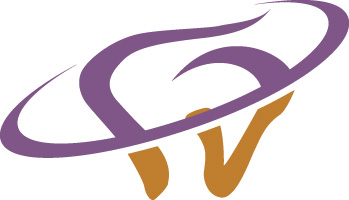How many times have you walked into a professional’s office and casually glanced at all of the diplomas and certificates and “notices” on the walls? Have you ever really LOOKED at them, actually EXAMINED them, read them in their ENTIRETY? Yeah…not many of us do. They’re sort of like scrolling through all that legalese when you install an app or software. Honestly, just seeing “documentation” on the walls is usually enough for most people. We simply assume our doctor or lawyer or dentist is “legit” and knows what they’re doing. But…what if they’re NOT?!? How would you even KNOW?!?
Disturbing question, right! Yet, especially patients who entrust their well-being (and that of their families) to a doctor, probably have NO idea whether their practitioner has a current license, has ever been reprimanded by a professional oversight board, has serious regulatory citations or infractions, or even has pending litigation or legal charges! And, smart money says the medical (or any other) professional WON’T volunteer that information – UNLESS they have been legally ordered to disclose this information.
SOOOO…where does that leave you, if you DO have questions about whether your dentist “follows the rules”? As we’ve mentioned before, an assortment of governmental and regulatory agencies have responsibility for dental profession oversight. In Texas, your first stop would be the Texas State Board of Dental Examiners (TSBDE):
Tex. Occ. Code § 263.002(a) authorizes the TSBDE to issue a warning, a reprimand, place a licensee on probated suspension, place a licensee on enforced suspension, or revoke a licensee for violation of the Dental Practice Act or TSBDE rules.
This may be accomplished through an Agreed Settlement Order or an Order of the Board imposed after a hearing at the State Office of Administrative Hearings. The Compliance Division monitors the licensee’s compliance with disciplinary action taken by the TSBDE.
Disciplinary actions are public information and can be found by doing a Licensee Search.
Next, we move onto the federal level, where the Health & Human Services Department and Department of Labor step in with HIPAA and OSHA requirements. These infractions can carry HEFTY fines and even force the closure of your practice! Let’s start with OSHA:
Dental professionals may be at risk for exposure to numerous workplace hazards. These hazards include, but are not limited to, the spectrum of bloodborne pathogens, pharmaceuticals and other chemical agents, human factors, ergonomic hazards, noise, vibration, and workplace violence.
Imagine this scenario…a relatively minor accident happens to a staff member while working. Obviously, your first concern would be attending to their welfare, seeking outside medical assistance if warranted. First, depending upon whether or not you carry Workers Compensation coverage, your carrier would need to be notified as they have protocols to follow to ensure proper care. However, whether under a Workers Comp claim or, as in Texas where such coverage is NOT required, you have elected to underwrite any related medical intervention on an out-of-pocket expense, one such incident CAN trigger an OSHA inspection. And, those federal agents WILL be looking at everything in your practice under a magnifying glass…and keep records of all infractions, including multiple violations, which are available to the public!
The agencies tasked with dental oversight are legion. Disgruntled employee? Cue the Department of Labor. Computer or IT issues? Oops…here come the HIPAA folks. Still hand-writing prescriptions? Look out for the ever-changing DEA regulations. Have X-ray and imaging equipment? That triggers the FDA inspections. Accept private insurance? Don’t run afoul of either state or federal Offices of Attorneys General who oversee fraud investigations. Of course, you KNOW about government healthcare coverages, right? We’re right back to HHS departments…and POSSIBLY criminal inquiries from the aforementioned Attorneys General. Treat any at-risk populations? Look for the CDC and health departments to provide “direction” regarding proper sterilization and PPE for infection control.
And, YES…all of these agencies keep meticulous records and you can search for YOUR dentist! But remember, YOU are your own best advocate. If something doesn’t look or seem “quite right",” ASK QUESTIONS! You can also report any possible violations to the respective authorities, and ask to be kept apprised of the investigation. So if you really want to know whether your dentist “follows the rules,” all of that information can be found – usually right at your fingertips!

